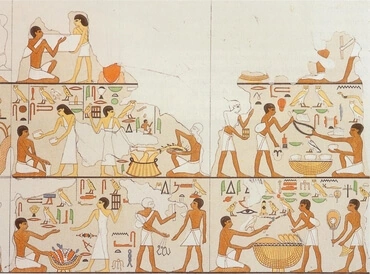Egypt

In the Bible, Egypt represents knowledge and the love of knowledge. In a good sense that means knowledge of truth from the Lord through the Bible, but in a natural sense it simply means earthly knowledge to be stored up and possessed. And even knowledge from the Bible is not always good: If we learn them with the goal of making them useful, then they are filled with angelic ideas. But they lack purpose when they are learned only for the sake of knowing things or for the reputation of being learned. So Egypt is a place you go to learn things, but to become heavenly you have to escape the sterile "knowing" and journey to the land of Canaan, where the knowledge is filled with the internal desire for good. It's interesting that when Egypt was ruled by Joseph, it was a haven for his father and brothers. This shows that when a person's internal mind rules in the land of learning, they can learn much that is useful. But eventually a pharaoh arose that didn't know Joseph, and the Children of Israel were enslaved. The pharaoh represents the external mind; when it is in charge the excitement and self-congratulation of knowing can reduce the internal mind to a type of slavery. The mind - like the Children of Israel - ends up making bricks, or man-made falsities from external appearances.






